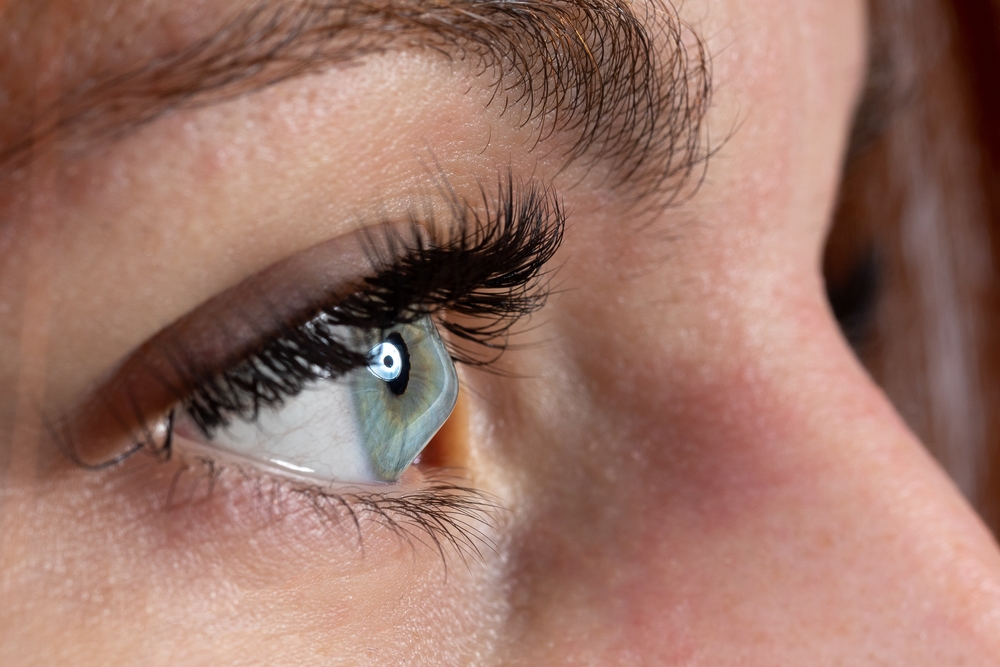
Keratoconus emerges as a relatively common yet misunderstood ailment. This progressive eye disease primarily affects the cornea, the eye's clear front surface. In keratoconus, the typically round cornea begins to thin and gradually bulge into a cone-like shape. This transformation leads to blurred vision, light sensitivity, and astigmatism.
What are the Causes of Keratoconus?
The exact cause of keratoconus remains a topic of ongoing research. However, it is generally believed to result from a combination of genetic, environmental, and hormonal factors.
Genetically, studies suggest that keratoconus can run in families. If a parent has this condition, the odds for their children developing it are increased. However, the condition often occurs randomly, with no apparent familial link.
From an environmental perspective, excessive eye rubbing and allergies are often associated with keratoconus. Persistent rubbing can lead to thinning of the cornea, triggering keratoconus. Furthermore, individuals with certain systemic disorders, such as Down syndrome, Ehlers-Danlos syndrome, and Leber's congenital amaurosis, are more likely to develop this condition.
Hormonal influences are also considered as they coincide with the typical onset of keratoconus during adolescence. However, it's important to note that these are merely correlations, not causative factors. The actual cause of keratoconus is likely multifactorial, involving a mix of the above elements.
Common Symptoms of Keratoconus
Recognizing the symptoms of keratoconus is crucial in its early detection and treatment. The most common signs include gradually worsening vision that cannot be corrected fully with glasses, frequent changes in eyeglass prescription, and increased light sensitivity.
The progression of keratoconus often results in myopia and irregular astigmatism, leading to significant distortion of vision. This distortion can manifest as multiple 'ghost' images, streaking, and glaring. Given that these symptoms are common to many other eye conditions, it underscores the importance of comprehensive eye examinations for accurate diagnosis.
As keratoconus progresses, patients may experience acute episodes of corneal hydrops, where sudden clouding of vision occurs due to fluid entering the cornea.
Treatment Options for Keratoconus
The treatment of keratoconus varies depending on the severity of the condition and how quickly it is progressing. The primary goal is to improve the cornea's shape to enhance vision.
In the early stages, eyeglasses or soft contact lenses may be sufficient to correct the mild astigmatism. However, as the condition progresses, these may no longer provide adequate vision correction.
Specialty contact lenses become the preferred option at this stage. These include rigid gas permeable (RGP) lenses, hybrid lenses, and scleral lenses. In more severe cases, where contact lenses fail to provide satisfactory vision or become uncomfortable, surgical interventions may be considered.
The Benefits of Scleral Lenses for Keratoconus
Scleral lenses are large-diameter rigid lenses that rest on the sclera and vault over the cornea without touching it. This makes them incredibly comfortable while providing excellent vision correction.
The main advantage of scleral lenses is their ability to mask the irregular cornea entirely, providing a smooth optical surface to correct vision. Additionally, the space between the lens and the cornea can serve as a reservoir for fluid, keeping the eye surface moist and comfortable.
Navigating through Keratoconus Effectively
Keratoconus, while a complex and potentially debilitating eye condition, can be effectively managed with early detection and appropriate treatment. Understanding the causes, recognizing the symptoms, and knowing the treatment options are key steps in managing this condition.
For more information on the causes, symptoms, and treatment options for keratoconus, visit Woodley Optometry at our office in Encino, California, or call (818) 862-4800 to schedule an appointment today.








